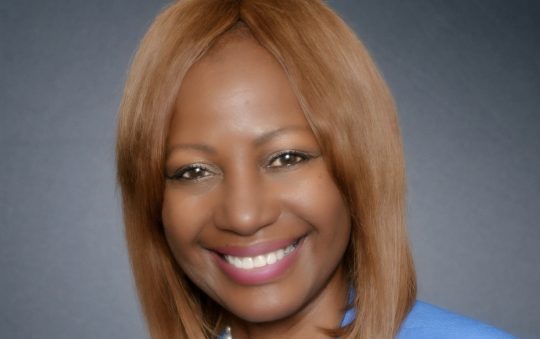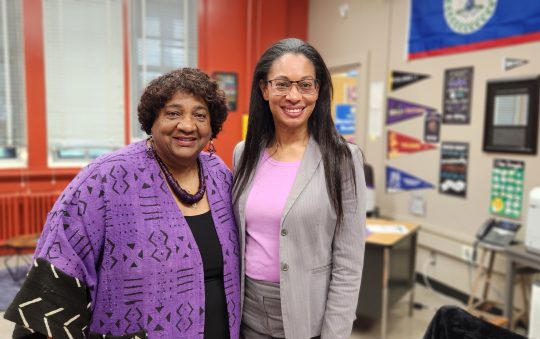
If feeling sick, Dr. Elaine Batchlor says not to panic. Call your doctor first or call the emergency department ahead of time, describe your symptoms and ask them if you should come in. Giving health professionals a heads-up helps them better protect you, other patients, and themselves.
Americans are known for their love of independence. It’s that spirit that will also help us fight the current COVID-19 (Novel Coronavirus) outbreak.
There has been a lack of leadership, to put it mildly, from the federal government. That leadership deficit has led to delays in testing, confusion over the scale and seriousness of the virus, and an absence of responsive solutions.
So, it’s up to us. We – individuals and local and state governments and organizations, working together – have the power to slow this disease.
The time is now, when we have relatively few cases of COVID-19, for us to slow the spread of the disease and “flatten the curve.” What does that mean? It means we have a window of opportunity to prevent more infections so that our health systems do not become overwhelmed with patients. The more people isolate themselves from contact with the virus, the fewer people will get sick, and the slower the disease will move. This means we will be more likely to have the people, resources and equipment to help those who do get sick.
It’s up to each of us to do what’s right. That includes following the directions of our local health authorities, who are on the front line for coordination of our response. Those authorities have told us to:
Call ahead: Feeling sick – but not that sick? Resist the urge to panic and run to the emergency department. Call your doctor or the free, 24-hour medical advice line that many of you have included with your personal health insurance. (List provided below.)
Use common sense. A sniffle or a tickly throat does not justify overwhelming an ED at a time when we need to reserve access for the most serious cases. Know the symptoms of COVID-19 that do merit serious attention: fever, cough, difficulty breathing. Especially if you’ve been in contact with someone who might have the virus.
Even then, don’t panic. Call your doctor first. Or, call the emergency department ahead of time, describe your symptoms and ask them if you should come in. Giving health professionals a heads-up helps them better protect you, other patients, and themselves.
Stay home: Do whatever you can do to keep from mixing with other people. Even people who do not have symptoms of COVID-19 can carry the virus, so don’t assume someone is healthy just because they look and feel good. Engage in “social distancing” or staying a good six feet away from non-family members. The less we engage in opportunities to transmit the virus, the slower this epidemic will move. And hey young people – this applies to you too. You may be healthy but you can transfer the virus to those who aren’t. So stay home.
Finally, and on a personal note:
Care for others: If you have elderly neighbors who are afraid to go to the store, ask them what they need. Have you noticed someone who looks sick or disabled living alone? Leave a note offering to provide assistance. Maybe even buy an aluminum tray or two and make an extra meal for them.
All over Los Angeles, I’ve heard stories of neighbors doing just that – offering assistance through online groups or leaving a note to help the more vulnerable. It’s wonderful.
Caring and community can be our greatest strength in fighting this crisis. That casserole you leave at someone’s door might save them from having to leave the house and be exposed. That casserole is – literally –a preventive action, and an important part of how we can keep this crisis from getting worse.
So, care. Share what you have. The mania over toilet paper is really strange. Don’t hoard. Don’t be selfish. Be generous. If someone needs a roll of TP, and you can spare it, then help them. The supply chains for these basic necessities haven’t stopped; they’ve just been overwhelmed as people panic and hoard enough toilet paper to outlast a zombie apocalypse.
Assume that if we all look out for each other, there will be enough. Remember the wise words of Martin Luther King, Jr: “Faith means taking the first step even if you can’t see the whole staircase.”
Have faith, share what you can, wash your hands, keep your distance from others and we will get through this – better – together.
VIRTUAL NURSE/DOCTORS TO CALL AHEAD:
Most plans, including Medi-Cal plans, have free Nurse Advice Lines available 24 hours a day, 7 days a week.
In you are covered by Anthem Medi-Cal, call: 1-800-224-0336 (TTY 711)
https://mss.anthem.com/california-medicaid/benefits/medi-cal-plan-benefits.html
If you are covered by Blue Shield Promise, call: (800) 609-4166 [TTY: 711]
You can also set up your Blue Shield Promise Teledoc account here: https://www.blueshieldca.com/bsca/bsc/wcm/connect/sites/sites_content_en/bsp/medi-cal-members/benefits/teladoc
If you are covered by Health Net, call:
1-800-893-5597
(TTY/TDD 1-800-276-3821).
If you are covered by LA Care:
1-800-249-3619
If you are covered by Molina Health Plan, call:
English: (888) 275-8750
For the hearing impaired, please call TTY: 711
Spanish: (866) 648-3537
Personas con impedimento de audición llame al TTY: 711








